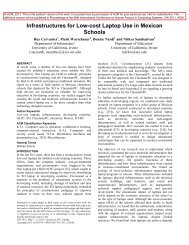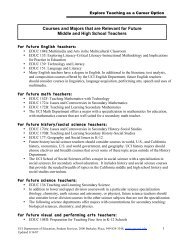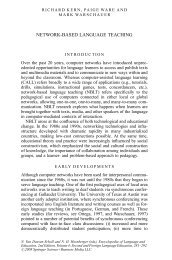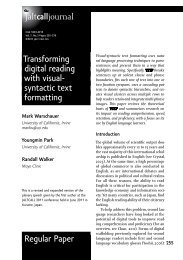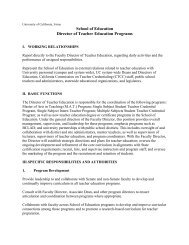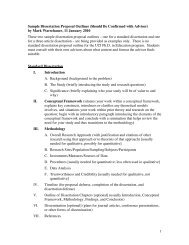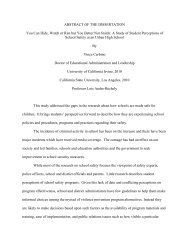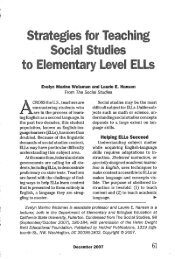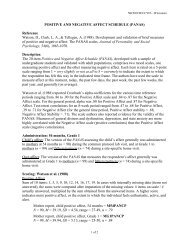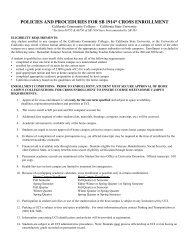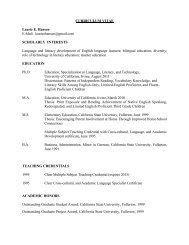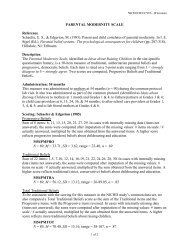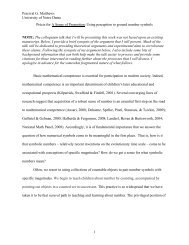Does Detracking Work? Evidence from a Mathematics Curricular ...
Does Detracking Work? Evidence from a Mathematics Curricular ...
Does Detracking Work? Evidence from a Mathematics Curricular ...
Create successful ePaper yourself
Turn your PDF publications into a flip-book with our unique Google optimized e-Paper software.
<strong>Detracking</strong> 7placements have positive average effects on student learning and educational attainment(Authors 2008; Chaney, Burgdorf & Atash 1997; Gamoran & Hannigan 2000).However, two empirical challenges make it difficult to rigorously evaluate theconstrained curriculum hypothesis. The first of these challenges is selection bias. In their tests ofthe constrained curriculum hypothesis, Lee and colleagues compare student outcomes betweenschools that enroll all students in college preparatory courses and schools that do not, controllingfor student academic and family background. While potentially informative, this approachassumes that there are no unmeasured differences between these two categories of schools andthe students who choose to enroll in them. This assumption is restrictive and ultimatelyimpossible to empirically assess. In an attempt to address the issue of selection bias, Authors(2008) use propensity score matching to compare students who enroll in academically rigorouscourses with a balanced sample of students who take less rigorous courses. Their findingssuggest that academic course enrollments have positive effects net of selection.However, Authors (2008) are unable to address a second challenge: since policy efforts toenroll all students in college preparatory courses also likely increase student skill heterogeneitywithin these courses, a test of the constrained curriculum must separate the effects of rigorouscurriculum <strong>from</strong> the effects of sharing a classroom with peers at different achievement levels(Zimmer 2003). This ambiguity has important consequences for the constrained curriculumhypothesis. If peer achievement exerts an independent influence on student learning, policies thatincrease classroom heterogeneity by pushing more students into advanced academic courses maynot be as effective as earlier findings suggest. As most of the students in nationallyrepresentative samples enroll in ability-grouped courses, it is impossible to distinguish between


